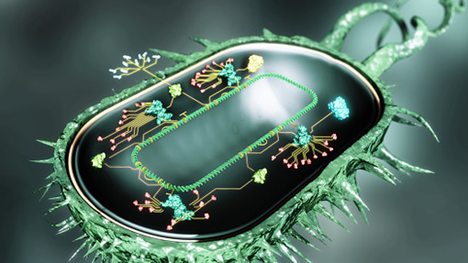Upgrades in the cost and speed of synthesis of new DNA are enabling researchers to plan and synthesize altered bacterial genomes that can be utilized for the production of cutting edge bioproducts, biofuels, renewable chemicals, specialty chemicals that are bio-based (such as food ingredients, pharmaceutical intermediates and fine chemicals) and also in the healthcare sector. Genetic engineering typically covers the exchange of individual genes from one cell or microbe to the other, whereas the science behind synthetic biology envisions the congregation of novel microbial genes from a bunch of genetic parts that are standardized, which are then inserted within a cell or a micro-organism.
Role in Industrial Biotechnology
Various Industrial Biotech companies and scientists have been using different forms of synthetic biology for quite a long time, including directed evolution, gene splicing and metabolic engineering. Closed fermentation vats are used for engineered micro-organisms for the production of desired end products. Toxic Substances Control Act is responsible for the regulation of GEMS i.e., Genetically Enhanced Microbes.
Scientists have carried out a thorough research to study microbial genomes for the accurate identification of biological processes that can replace the chemical reactions for producing new yields, cleaner manufacturing operations, and lessening the number of production steps. For instance, if the natural power of enzymes or whole-cell systems is harnessed and sugars are used as the feedstock for product manufacturing, then industrial biotech companies may be able to work with nature, helping us move to a “bio-based economy” from a “petroleum-based economy.”
Breakthroughs in the Field of Synthetic Biology
• Biological Computers: A biological computer alludes to a designed biological system that can perform operations similar to a computer. Scientists constructed and characterized an assortment of logic gates in various organisms, demonstrating both digital and analog computation within living cells. Another group of researchers in 2017 demonstrated the 'Boolean logic and arithmetic through DNA excision' (BLADE) system for engineering digital computation within human cells.
• Biosensors: An engineered organism, generally a bacterium, that is able to report certain ambient phenomenon like the presence of hefty metals or poisons is referred to as a biosensor. One such framework is of the Lux operon of Aliivibrio fischeri, which codes for the enzyme compound responsible for bacterial bioluminescence and can be inserted after a respondent promoter for the expression of luminescence genes in response to a certain stimulus from its environment. The creation of one such sensor comprised of a coating of bioluminescent bacteria on a photosensitive computer chip to recognize specific petroleum pollutants.
• Space Exploration: Synthetic biology has also raised NASA's interest as it could assist with the production of resources for astronauts from a limited arrangement of accumulates sent from Earth. Specifically, on Mars, synthetic biology could prompt production measures dependent on local resources, therefore making it a great tool in the improvement of manned outposts with reduced reliance on Earth. Work has gone into creating plant strains that can adapt to the harsh Martian climate, utilizing comparable methods to those utilized to expand flexibility to certain environmental factors in agricultural harvests.
• Targeted Drug Delivery Platforms: As of late, synthetic biologists reprogrammed microscopic organisms to detect and respond to a specific malignant growth state. One of the routes is to permit microbes to sense the microenvironment of the tumor, for instance hypoxia, by building an AND logic gate within the microbe. The micro-organisms then just release target drug molecules to the tumor through either the bacterial secretion system or lysis. Lysis has the benefit that it can control growth by the stimulation of the immune system. Numerous sorts of secretions system can be utilized along with other techniques. External signals are responsible for the induction of the system and the inducers include chemicals, light, or electromagnetic waves.

